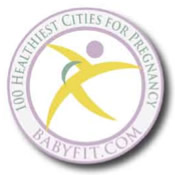 Vitamin E acts as an antioxidant that prevents premature reaction to oxygen in the body and the breakdown of many substances in the body. It neutralizes free radicals that could cause damage to cells and tissue, while aiding in circulation, clotting, and healing. Some studies have even shown that vitamin E decreases symptoms of premenstrual syndrome and certain types of breast cancer. Other studies have shown that taking large doses of vitamin E has decreased the risk of coronary artery disease.
Vitamin E acts as an antioxidant that prevents premature reaction to oxygen in the body and the breakdown of many substances in the body. It neutralizes free radicals that could cause damage to cells and tissue, while aiding in circulation, clotting, and healing. Some studies have even shown that vitamin E decreases symptoms of premenstrual syndrome and certain types of breast cancer. Other studies have shown that taking large doses of vitamin E has decreased the risk of coronary artery disease. Most vegetable oils, wheat germ, soybean oil, safflower oil, raw seeds and nuts, egg yolk, whole grain products, beef liver, peanut butter, and unrefined cereal products are good sources of vitamin E. Women need 15 mg of vitamin E on a daily basis. Pregnant and nursing moms should consume 15 mg and 19 mg daily, respectively. Though it is almost impossible to have a vitamin E deficiency, too much can cause nausea and digestive tract problems. Prolonged overexposure can lead to toxicity and other health problems.
This article was reviewed by Tanya Jolliffe, a BabyFit healthy eating expert. |
Vitamin E: A Valuable Antioxidant
Other Key Nutrients for the Mom-to-Be
Page 1 of 1





Member Comments